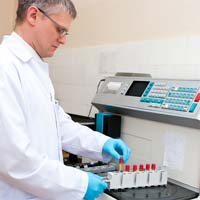New Antibody to Diagnose Mesothelioma
Scientists are trying to find ways to diagnose malignant pleural mesothelioma (MPM) more easily. An antibody called SKM9-2 could be the answer. A team of researchers from Japan are hoping to use SKM9-2 to develop new drugs to treat MPM. These new drugs might be able to target the cancer cells directly. Road to Definitive Diagnosis MPM is an aggressive cancer caused by asbestos that affects the area around the lungs. There are approximately 2,000 cases of mesothelioma diagnosed in the United States every year. The road to a definitive diagnosis of pleural mesothelioma can sometimes take weeks. In the early stages, people with pleural mesothelioma commonly experience shortness of breath, chest pain, persistent dry cough, and unexplained weight loss….


